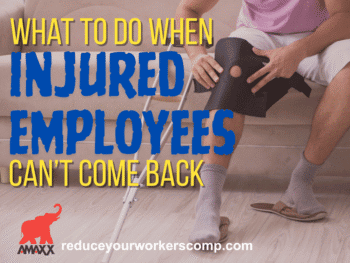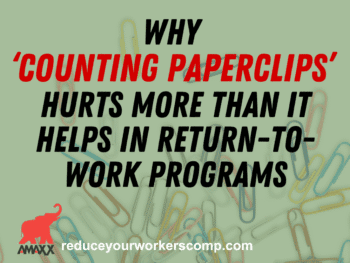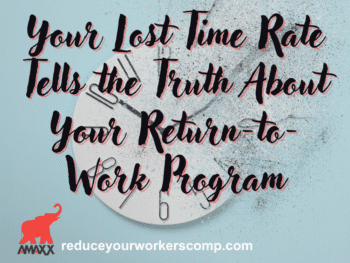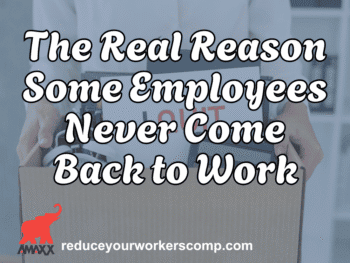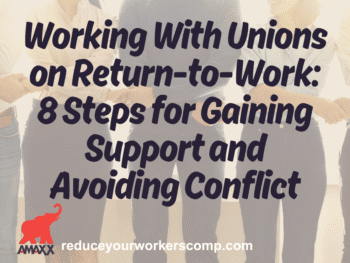The good news is that about 85 percent of injured workers return to their jobs within thirty days of their injury. The remaining 15 percent, however, are angry, afraid and often unmotivated to find work. And, they have been led to believe by doctors and lawyers that they may never work again. Securing employment for them through a traditional return-to-work program is a major challenge. Avoiding Going Back to Work – Every day thousands of injured workers avoid going back to work. They intentionally sabotage interviews by wearing inappropriate attire or acting hostile, aggressive and even threatening toward potential employers. They act out what some call the workers' comp "return-to-work drama." In this production, the primary cast includes the injured worker, doctor, adjuster and, finally, lawyers. They are supported by the employer, private investigator, rehabilitation supplier and reemployment specialist. As some members of the cast try to end the play by getting the employee back to work or settling the claim, others counter their effort. After all, if the play ends, the money flow stops for some of these characters. Emotional Cycle of a Disability During the recovery process, many injured workers experience negative emotional "training" from medical and legal professionals. Rather than exploring their patients' (or clients') potential for the future, doctors and lawyers often focus on what they will not be able to do until (or when) they recover. A negative outcome is unintentional, since doctors and lawyers generally want what is best for their client, but it often moves injured employees into a cycle of disability. Doctors are obligated to frankly discuss their patients' conditions, and to brief them on any possible disability they may face. Diagnosing a patient through rose-colored glasses is a sure way to a malpractice suit, and doctors know it. So for them, it pays to be bleak. Likewise, while many attorneys want their clients to get back to work, there is a financial impact associated with claims resolution. Legal professionals juggling hectic schedules can inadvertently extend the litigation process by months or even years, stifling momentum toward recovery. This emotional drama weighs heavily on workers, lulling them into a cycle of disability. Over the next few days, we'll be exploring What To Do when An Employee Avoids Going Back to Work. Consultant Gordan Butler, formerly private investigator and RTW consultant, has some great ideas so sign up for email versions or RSS feed to make sure you don't miss any of his ideas. Gordon R. Butler, SOAR Research, Inc. can be reached at 866.813.5888 or email: gbutler@sgbutlerconsult.com. http://www.gbutlerconsult.com/ WC Calculator www.ReduceYourWorkersComp.com/calculator.php TD Calculator www.ReduceYourWorkersComp.com/transitional-duty-cost-calculator.php WC 101 www.ReduceYourWorkersComp.com/workers_comp.php Do not use this information without independent verification. All state laws are different. Consult with your corporate legal counsel before implementing any cost containment programs. ©2008 Amaxx Risk Solutions, Inc. All rights reserved under International Copyright Law. If you would like permission to reprint this material, contact Info@WorkersCompKit.com �





